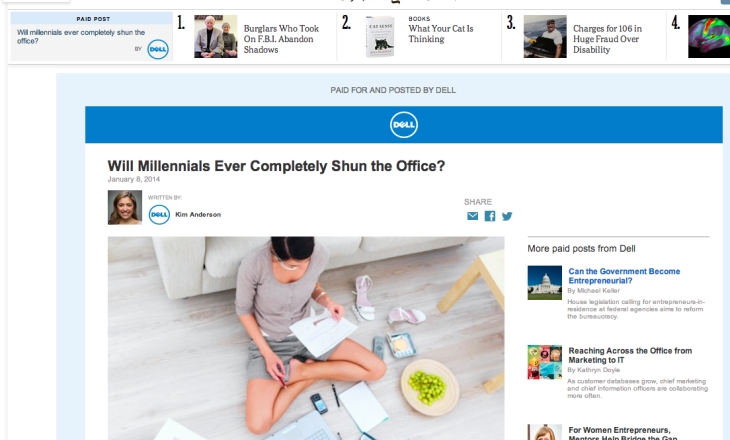Readers – at least in the UK and US – are feeling increasingly deceived over sponsored content. In fact, over one-third of British and American readers of online news say they have felt “disappointed or deceived†on realising subsequently that an article that they had just read had been paid for by an advertiser. This finding poses significant risk of damage to the reputation of digital publishers.
According to a study that was conducted by the Reuters Institute for the Study of Journalism (RISJ) at Oxford University, the finding was in sync with focus groups which showed that online news consumers care deeply about trust, truth and accuracy, which is why strong emotions are roused when they feel they are being “deceived†by advertising masquerading as content.
The special research, conducted for the Reuters Institute by YouGov as part of the 4th Digital News Report, shows just “how confused readers are by the labelling of so-called sponsored content and suggests that when it comes to native advertising, the risk of damaging reputations are far higher for news websites than for advertisers.â€
The report remarked, “With publishers finding it harder to make money from traditional banner advertising, focus is switching to new forms of ‘native’ advertising where brand messages look more like regular content – sitting in the same templates and using the same formats that might be used for a standard piece of journalism or a user-generated post on social media.â€
Among major online publishers, the New York Times, Guardian and Wall Street Journal already have teams in place that produce sponsored content. On the other hand, out and out digital companies like Quartz and Buzzfeed in any case make generate most of their revenues from native advertising formats.
The report says that consumers want to see clear labelling and signposting of paid-for content. Readers don’t like to feel they are being deceived; however, if they know up-front that a brand may have influenced the content, consumers are more accepting. Many felt that there are some content areas – such as home and world news, politics, and financial news – that should be considered sacred and free from native advertising. Some respondents even contended that should news organisations start introducing native advertising to the more serious news content areas, it would have a damaging impact on their perceptions of the news organisation.
Awareness of sponsored content is still growing but most respondents who’ve seen it say that it has neither a positive nor negative impact on either the brand in question or the news organisation that carries the content. However, around a fifth (22% in US and 21% in UK) say that they have a less positive view of the brand paying for an advert. The impact on the news organisation that carries the ad is more negative, with 28% of UK and US respondents having a less positive view of the news organisation.
YouGov Director of Media Research Shaun Austin, who conducted the study, said in a release: “Blurring the line between advertising and editorial could harm the credibility of news brands, with little lasting impact on advertisers. There is a general consensus that news pages are for news and anything that interferes with this raises doubts among consumers and is potentially very damaging to any news brand that attempts it.â€
The report also suggests that traditional forms of online advertising are struggling to have an impact. Consumers’ annoyance with advertising and the interruption it causes to their reading experience has led large numbers to install ad-blocking software. In the UK, 39% have installed ad-blocking software on their PC, mobile, or tablet, whereas in the US this rises to 47%. The figures are even higher for 18–24s (56% and 55% respectively). The increasing use of ad-blocking software means that advertisers need to find new ways of reaching their audiences, and native content has the potential to reach audiences, particularly amongst younger consumers and for more feature-based content.










